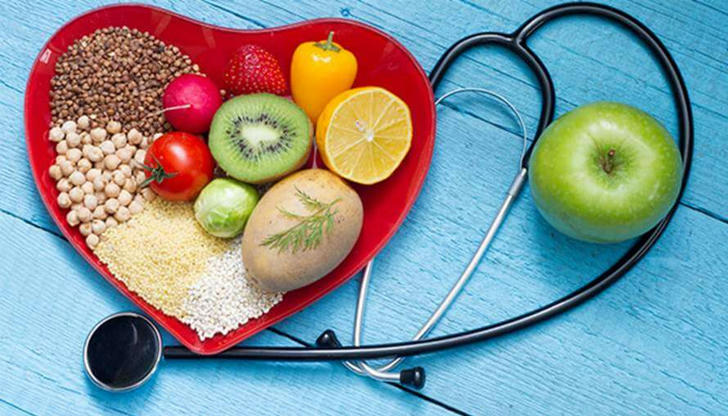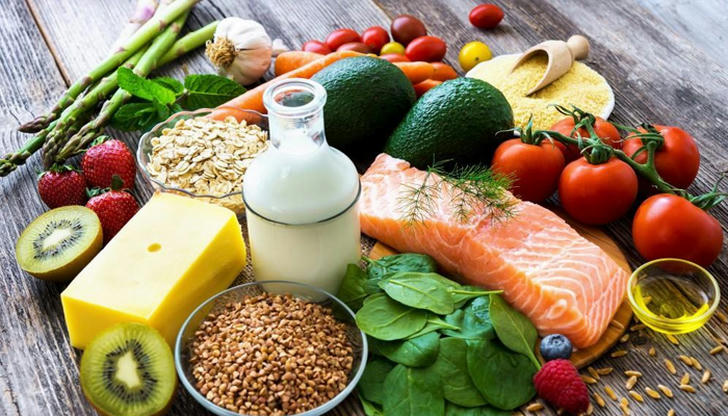Eating for Energy: Best Foods to Fuel Your Day Naturally
Introduction
Energy is essential for every aspect of our daily lives — from focusing at work or school to exercising and even enjoying time with family and friends. The foods we eat play a crucial role in determining how much energy we have and how well that energy is sustained throughout the day. While many people rely on quick fixes like sugary snacks or caffeinated drinks, these can lead to energy crashes and long-term health issues. Instead, fueling your body with natural, nutrient-rich foods is the key to maintaining consistent and vibrant energy levels.

Understanding Energy Production in the Body
Our bodies produce energy through a complex biochemical process that converts food into adenosine triphosphate (ATP), the primary energy currency of cells. This process requires a balance of macronutrients and micronutrients.
Macronutrients and Energy
- Carbohydrates are the body's preferred source of energy. They break down into glucose, which cells use immediately or store for later.
- Proteins primarily help build and repair tissues but can also provide energy, especially when carbohydrates are low.
- Fats offer a dense energy source and are critical for long-lasting fuel, especially during low-intensity activities.
Micronutrients in Energy Metabolism
Vitamins and minerals such as B vitamins, iron, and magnesium are cofactors in the biochemical pathways that generate ATP. Without them, energy production becomes inefficient, leading to fatigue.
Best Foods for Sustained Energy
Choosing the right foods can make a significant difference in how energized you feel throughout the day.
Complex Carbohydrates
Complex carbohydrates digest slowly, providing a steady release of glucose:
- Whole grains like oats, quinoa, brown rice, and whole wheat bread
- Legumes such as lentils, chickpeas, and black beans
- Vegetables, particularly starchy ones like sweet potatoes, carrots, and squash
Healthy Fats
Healthy fats support brain function and provide long-term energy:
- Nuts (almonds, walnuts, pistachios)
- Seeds (chia, flaxseeds, pumpkin seeds)
- Avocado
- Olive oil and other plant-based oils
Quality Proteins
Protein helps repair tissues and maintain muscle mass, indirectly supporting energy:
- Lean meats such as chicken and turkey
- Fish rich in omega-3 fatty acids like salmon and mackerel
- Dairy products like yogurt and cheese
- Plant-based proteins like tofu, tempeh, and edamame
Fruits and Vegetables
Packed with vitamins, minerals, and antioxidants, fruits and vegetables enhance cellular health and energy production:
- Berries (blueberries, strawberries)
- Citrus fruits (oranges, lemons)
- Leafy greens (spinach, kale)
- Bananas (rich in potassium)

Foods to Avoid or Limit for Stable Energy
Certain foods can cause spikes and crashes in energy levels:
- Simple sugars found in candies, sodas, pastries cause quick blood sugar spikes followed by rapid drops.
- Processed foods often lack essential nutrients and contain unhealthy fats.
- Excessive caffeine can lead to jitteriness and interfere with sleep, which reduces overall energy.
- Heavy, greasy, or fried foods may cause sluggishness and digestive discomfort.
Timing Your Meals for Optimal Energy
When you eat matters as much as what you eat.
- Start with a balanced breakfast including protein, fiber, and healthy fats to jumpstart metabolism.
- Eat small, frequent meals or snacks every 3-4 hours to maintain blood sugar stability.
- Stay hydrated, as dehydration can cause tiredness and reduce concentration.

Special Nutrients That Boost Energy Naturally
Certain nutrients are particularly vital in maintaining energy:
- B Vitamins (B1, B2, B3, B6, B12) aid in converting food into energy.
- Iron transports oxygen to muscles and brain; deficiency leads to fatigue.
- Magnesium supports muscle function and energy production.
- Antioxidants help reduce oxidative stress in cells, improving overall vitality.
Sample Daily Meal Plan to Fuel Your Day
Here’s an example of a day’s meals designed for sustained energy:
- Breakfast: Oatmeal topped with fresh berries, chia seeds, and a spoonful of almond butter.
- Mid-morning snack: Greek yogurt with sliced banana and walnuts.
- Lunch: Quinoa salad with grilled chicken, mixed greens, cherry tomatoes, avocado, and olive oil dressing.
- Afternoon snack: Carrot sticks with hummus.
- Dinner: Baked salmon, sweet potato, and steamed broccoli.
- Evening: A small handful of pumpkin seeds or a piece of dark chocolate (70%+ cacao).
Lifestyle Tips to Complement Eating for Energy
Beyond food choices, other habits influence your energy levels:
- Regular physical activity improves cardiovascular health and stamina.
- Adequate sleep (7-9 hours for most adults) is essential for energy restoration.
- Stress management techniques like meditation or yoga help prevent energy depletion.
Conclusion
Eating for energy is about more than just calories—it's about nourishing your body with the right balance of nutrients that support steady, sustained vitality. By choosing whole, natural foods rich in complex carbohydrates, healthy fats, quality proteins, and essential vitamins and minerals, you can fuel your day naturally and effectively. Coupled with mindful meal timing, hydration, and a balanced lifestyle, these habits will help you maintain your energy, focus, and overall well-being every day.
Remember, small changes in your eating habits can make a big difference. Start fueling your body with nature’s best and feel the energy flow!
